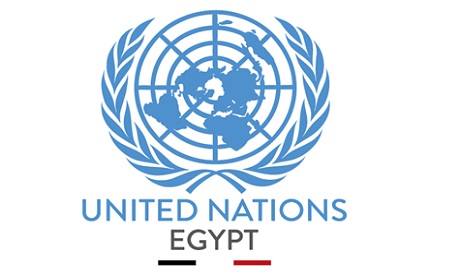
Ashraf AboArafe
Over the course of 2020, COVID-19, has taken more than 900,000 lives, infected more than 27 million people. This updated report provides an overview of the data, analysis, policy recommendations and concrete support that the UN has made available to states and communities to cope with the health, socio-economic, humanitarian and human rights impacts of COVID-19.
The update includes new data on how the virus has affected economies and societies, and summaries of the twenty policy briefs the SG has issued with analysis of their impact. It outlines the steps needed to save lives, protect societies and recover better, leaving no one behind and addressing the fragilities and gaps that made us so vulnerable in the first place. It points the way towards addressing future shocks – above all from climate change – and overcoming the systemic inequalities that have been exposed and exacerbated by the pandemic.
KEY MESSAGES
· The pandemic is more than a health crisis, it is a human crisis that has laid bare severe and systemic inequalities. No country has been spared. No population group remains unscathed. Nobody is immune to its impacts.
· COVID-19 has upended the global economy and cast a dark shadow across our future. The global economy may contract by around 5% this year. Up to 100 million people could be pushed back into extreme poverty. Gains on gender equality risk being reversed by decades. Global human development is set to drop for the first time since measuring began in 1990.
· The UN is pursuing a three-point response: A health response to save lives; the adoption of policies to safeguard lives and livelihoods protect societies; a recovery process that leaves no-one behind, leading to a fairer, more resilient and sustainable post-COVID world
· The UN system mobilized early and comprehensively. It led on the global health response, provided life-saving humanitarian assistance to the most vulnerable, established instruments for rapid responses to the socio-economic impact, and laid out a broad policy agenda.
· The world is still in the acute phase of the pandemic. Overcoming it requires sustained political leadership, unprecedented levels of funding, and extraordinary solidarity between and within countries.
· The world needs the biggest public health effort in human history. We need a vaccine, diagnostics and treatment that are for everyone, everywhere. A COVID-19 vaccine must be seen as a global public good.
· We cannot postpone climate action because climate change is not on hold. Addressing climate change and COVID-19 simultaneously and at enough scale requires a response stronger than any seen before to safeguard lives and livelihoods.
· We must reset and strengthen the structures for cooperating globally so that we are better prepared for the next such crisis.
· It is vital to strengthen pandemic preparedness, management and response. Unless countries take steps to curb zoonotic contagions, pandemics will become more common.




